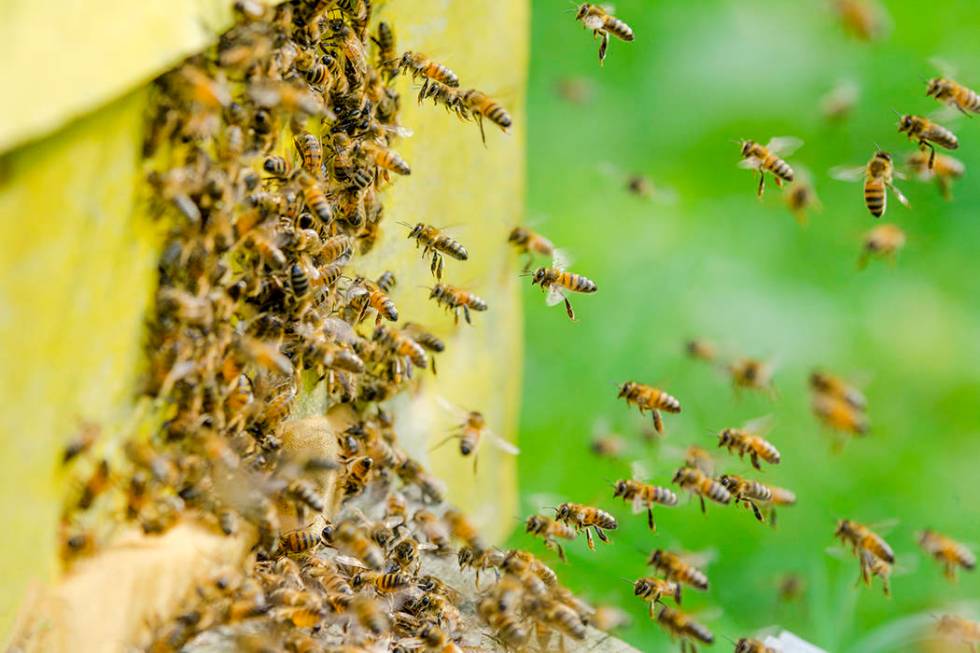3 dogs die after being stung by bees in west Las Vegas Valley

Three dogs died after being stung by a large group of bees in a west Las Vegas Valley neighborhood Thursday afternoon in what an official said was a rare occurrence.
“We haven’t had a call like this in at least two or three years inside the city,” said Las Vegas Fire Department spokesman Tim Szymanski. “We haven’t had anything this serious.”
A large hive of bees had grown in a neighboring house, in the area near Alta Drive and Rainbow Boulevard, and the bees swarmed the dogs after feeling threatened, said Szymanski, who’s responded to bee-related calls in the valley for more than 20 years. When bees feel vibrations they think their hive is under attack, and the dogs barking could have triggered the bees, he said.
“They continued to get stung more, more bees come out and within a minute or two you can have hundreds or even thousands of bees,” he said.
The dogs, a chihuahua, cocker spaniel and a pug-beagle mix, were taken to a nearby animal hospital. One dog was unconscious and suffering from seizures when fire crews arrived, and a veterinarian said the other dogs may not improve because bee venom increases in intensity with time, Szymanski said.
He said the woman and man who owned the dogs decided to euthanize them because of their injuries. The two arrived at their house as the bees were stinging, and the man was stung a few times while trying to stop the insects.
The man didn’t need medical attention, Szymanski said. There were no animal control violations, and the city’s Code Enforcement Division was called to see if the neighbor’s yard had code violations.
The hive was growing for six to eight months and had reached a large size. Szymanski said the bees were defending their home and not purposefully attacking the dogs.
When one bee dies after stinging something, it releases an odor that signals other bees to sting, he said.
“I don’t like to use the word ‘attack’ because bees don’t fly around like they show in the movies and say, ‘Let’s go down and kill that dog,’” he said. “They are just trying to defend themselves, and the only way they do that is to sting.”
An exterminator will kill the hive after the bees have calmed down, he said. Most reported hives are relocated to keep the bees alive and produce honey, but if the bees have stung someone they will be killed, Szymanski said.
“We’re only exterminating the ones that are a threat to public safety,” Szymanski said. “Their hive is big enough that they’re going to hurt someone else in that neighborhood.”
He said if someone finds a hive near their home, they should avoid the area and call the Fire Department so the bees can be removed. Szymanski operates a bee hotline at 702-229-2000.
Most large groups of bees are seen during swarming seasons, from mid-September to mid-November and from early March to around May, he said. During that time, bees form large groups while flying north to south around sunrise and sunset.
The bees during swarming season are less likely to sting because they haven’t formed a hive to protect, unlike the bees that harmed the dogs Thursday, Szymanski said.
“These were not swarming bees, they actually built a home and they felt that a home invasion was occurring,” he said.
Contact Katelyn Newberg at knewberg@reviewjournal.com or 702-383-0240. Follow @k_newberg on Twitter.